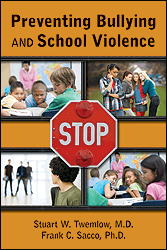Published: December 27, 2012

iStock photo
Kindness key to happiness and acceptance for children
Children who make an effort to perform acts of kindness are happier and experience greater acceptance from their peers, suggests new research from the University of British Columbia and the University of California, Riverside.
Kimberly Schonert-Reichl, a professor in UBC’s Faculty of Education, and co-author Kristin Layous, of the University of California, Riverside, say that increasing peer acceptance is key to preventing bullying.
In the study, published today by PLOS ONE, researchers examined how to boost happiness in students aged 9 to 11 years. Four hundred students from Vancouver elementary schools were asked to report on their happiness and to identify which of their classmates they would like to work with on school activities. Half of the students were asked by their teachers to perform acts of kindness – like sharing their lunch or giving their mom a hug when she felt stressed – and half were asked to keep track of pleasant places they visited – like the playground or a grandparent’s house.
After four weeks, the students again reported on their happiness and identified classmates they would like to work with. While both groups said they were happier, kids that had performed acts of kindness selected higher numbers of classmates to work with on school activities.
“We show that kindness has some real benefits for the personal happiness of children but also for the classroom community,” says Schonert-Reichl, also a researcher with the Human Early Learning Partnership at UBC.
According to Schonert-Reichl, bullying tends to increase in Grades 4 and 5. By simply asking students to think about how they can act kindly to those around them, “teachers can create a sense of connectedness in the classroom and reduce the likelihood of bullying.”
The above story is reprinted from materials provided by University of British Columbia
Published: October 11, 2012

istockphoto
he experience of being bullied is particularly detrimental to the psychological health of school girls who don’t have social support from either adults or peers, according to a new study by Dr. Martin Guhn and colleagues from the
University of British Columbia in Canada. In contrast, social support from adults or peers (or both) appears to lessen the negative consequences of bullying in this group, namely anxiety and depression. The work is published online in Springer’s
Journal of Happiness Studies.
Guhn and his team looked at whether the combination of high levels of bullying and low levels of adult as well as peer support have a multiplicative negative effect on children’s well-being. [continue reading…]
Published: November 28, 2011

istockphoto
On Nov. 11, a 10-year-old girl called a “slut” by her classmates in Illinois, committed suicide.
By eighth grade, girls have already started to monitor the sexual conduct of other girls, according to researchers, and 70 percent of students have experienced some kind of non-physical sexual harassment, including sexual rumor spreading, also known as “slut bashing.”
However, girls and women who are labeled sluts may not even be sexually active, according to Dr. Maureen McHugh, professor of psychology at Indiana University of Pennsylvania.
McHugh has been researching “slut bashing” in relation to the double standard of sexuality. [continue reading…]
Published: November 23, 2011
Stuart W. Twemlow, M.D., is a professor of psychiatry in the Menninger Department of Psychiatry at Baylor College of Medicine and the coauthor of Preventing Bullying and School Violence (American Psychiatric Publishing).
In his article Can We Eliminate Bullying From Schools and Communities? Twemlow describes bullying is a social process, not a personal one.
Shaping the child’s behavior with social-skills training won’t effect change in the system until group dynamics, often unconscious, are discussed and resolved,” he said. “All schools need to take steps to mold a set of ideas or an approach to prevent bullying, adapt it to their cultural context, and get very high buy-in from staff and parents. Then a school can truly become a creative social, emotional, and intellectual learning environment.” read more
Source: PsychiatryOnline American Psychiatric Association

Preventing Bullying and School Violence
Stuart W. Twemlow, M.D., and Frank C. Sacco, Ph.D.
2012
337 pages
ISBN 978-1-58562-384-6
Paperback




